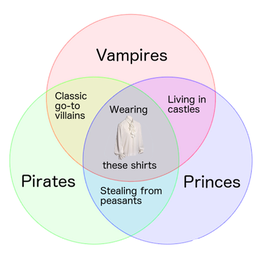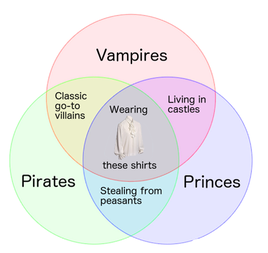|
-“How do I find a research topic when I have no ideas?” - “I am trying to identify a research project, where should I start?” -“How do I know which of my research ideas is the best adapted for a research assignment?” These are questions I am often asked by students in the modules assessed by autonomous research projects that I teach at the London School of Economics and Political Science. In this blog post, I have put together for you a three-step process to help you a find a research topic: 1. Starting points to identify a research topic 2. Criteria to help you select the most adapted research topic 3. One thing to keep in mind: research topics are not set in stone and they evolve over time Starting points to identify a research topic
Take a step forward: Brainstorm using the three starting points above and list 3-5 potential research topics. For each of these options, address “the next step” identified (1. finding key words in the literature, 2. identifying a potential case, 3. pinpoint specific contributions/positioning). At the end of this exercise, you should have 3-5 potential ideas for research topics in front of you in writing. Criteria to refine and select your research topic
Evolving topic vs changing topic Photo by Chris Lawton on Unsplash Finally, it is important to consider that the topic you have chosen will likely not be exactly the same topic as the one you end up submitting. By this I mean that it is normal that your research project evolves throughout your research journey, which includes transforming/tweaking some aspects of your initial research topic. That research topics evolve is a process inherent to research; letting go of our previous ideas, perceptions and anticipations is an integral part of being a self-critical researcher!
That being said, transforming a research topic through research is different to changing a research topic all together. By changing topics, I mean that you have started working on one of the options selected through the criteria above, but a couple of months down the line you decide you want to work on another option. This is a different scenario. If this is something you consider doing, you need to ask yourself the reasons behind this desire (as some might be strategic and relevant but many are ... not). For example, if you realise that you didn’t anticipate a feasibility issue, it might be wiser to reorient the research question instead of changing the topic altogether. Indeed, if you have a deadline, time is precious and it might be risky to completely change a project after a certain point.
1 Comment
In many regards, the research question can be considered the most important part of a research project. Because of its centrality, it is a common source of struggle and anxiety for students as they learn to become junior autonomous researchers. In this blog post, I tell you what the role of the research question is, why it is 300% worth spending time working on it and provide some ready-to-use advice on how to improve your research question, starting with its formulation. Different types of research questionsTo start, let’s distinguish between different types of research questions. The list, of course, is not exhaustive. I unpack here the research questions that the students I teach have to navigate in the development of their research projects in UK higher education. 1. “Working research questions” Throughout a research project, we ask ourselves dozens of questions while conducting our inquiry. I call these questions “working research questions”. 2. “Main research questions” This is a question that comprises a concept and that is pitched and formulated in a way that helps you to produce rich analytical work, rather than only description.
An analytical question will help you produce more analytical results (for more information on what I mean by “analytical”, read the blog post “What is analysis? Some tips to become more analytical”) 3. “Sub-questions” Some research designs require the execution of distinct steps, each providing results that will then be analysed jointly, to be able to reach overall conclusions. This can be the case with mixed-method research (part of the research design is quantitative, part is qualitative) or multi-method (different methods are used and all can be either qualitative or quantitative). In this type of research design, different sub-questions may need to be investigated separately, as each constitutes a different piece of the puzzle that needs to be solved to answer the main research question.
Not all the questions we ask ourselves throughout a research project need to be shared with the readers. Don’t forget that a piece of research is an argumentative discourse produced for someone else rather than a chronological archive of every idea you went through. In the same way that a music album is a finite product aimed for an audience to experience, a research paper is an intellectual product, a discourse aimed for an audience to learn from. While sub-questions are essential foundations to understanding the architecture of your project and need to be shared, you do not need to share all the working questions with the readers. What is the role of the (main) research question?In the rest of the blog post, I will focus on main research questions as this is what most students are asking me about. Regarding my students at the London School of Economics more specifically, these are the type of questions you are usually expected to formulate for 3000 word and 4000 word individual project assignments. The main research question plays several important roles. This is why it is important to spend time working on it …. and a badly formulated research question often involves consequences rippling throughout the rest of the research design (aka shooting yourself in the foot!). A research question is a tool of research design:
The research question is also useful for the readers: make sure it synthesises your project’s lines of enquiry in one sentence that can strike their interest and act as a memorable takeaway! Formulating research questions'Students often approach the idea of “formulating” a research question as a way to polish it at the end of their project to make it “sound nice”. But there is more to it than that. The words we pick for our research question are more important than any other words in our research project: they are the magic ingredients that can take our research project to the next level. Taking the formulation of your research question seriously enables you to create a more coherent and impactful research design; it also lays a solid foundation for the rest of your project. Let’s unpack how research questions are constructed through two examples (one rather qualitative and one rather quantitative). I have kept them abstract on purpose so it is easier for you to fill in the blanks with something related to projects that you may have in mind, rather than being distracted by the specifics of what these research questions may be about: How do [social group x] experience [something]? Does [something] impact [social group]’s access to [something]? In the following, I’ll unpack one by one the different types of words that constitute common research questions such as these two:
Does [something] impact [a social group]’s access to [something]? Notice the difference between how these two research questions start. The first one is open-ended (not answerable via 'yes' or 'no') while the second one is closed-ended (answerable via 'yes' or 'no'). This difference has big research design implications, both epistemological and methodological. For example, open-ended questions work well when you have a small sample with rich material that you can unpack analytically to show nuances, tensions and the like. In contrast, 'yes'/'no' questions will often end up leading to very flat results with a small sample. On the other hand, hypothetico-deductive designs often work well with closed-ended questions. Closed-ended questions can also help problematise assumptions that the literature takes for granted (if everyone agrees that something is a 'yes', and your exploratory work seems to suggest it might be a 'no', a 'yes' or 'no' question can potentially lead to very innovative/provocative results). So it is always a question of making sure the word that guides the nature of your question aligns with the other dimensions of your research design.
Does [something] impact [social group]’s access to [something]? The grammatical subject is the core of your research design. Make sure there is an alignment between what you chose as the grammatical subject and the rest of your research design choice: such as the empirical material and analytical framework you choose, as well as the literature you review. For example: How does [social group x] represent [something]? Is different to: How is [something] represented by [social group X]? Here I am not talking about active style vs passive; the difference has implications in terms of what the project is about: “How does the World Health Organisation represent childbirth?” reflects a project about international organisations, discourses of authority and policy-making etc while “How is childbirth represented by the World Health Organisation?” focuses on childbirth as a discursive and symbolic site, the history and geography of its representation of which international organisations represent the current instance your project aims to focus on.
Does [something] impact [social group]’s access to [something]? This verb is the entry point to operationalisation, so you need to ask yourself: do you understand the process or phenomenon this verb entails and is your research design enabling you to empirically assess this process or phenomena?
Does [something] impact [social group]’s access to [something]? I encourage junior researchers to ask a question with a question mark. This will make it easier for you to identify whether your research question is actually a research question or something else (e.g. a hypothesis or variable in disguise). Make sure that your research question is different from the (formal or informal) hypothesis you may have and that there is not an answer already included in your question (that it is not a real question!). Constructing research questions beyond formulationHere are a few criteria that can help you further brainstorm/self-assess your research question. Namely, your research question needs to be:
To conclude, there is no cookie-cutter recipe. Each methodological tradition has its own specificities when it comes to what constitutes good research questions, which goes way beyond what a blog post (or my expertise!) allows. But I assure you that implementing the tips I give you in this blog post will help you on your research design journey 😉. |
AuthorAudrey Alejandro Archives
March 2023
Categories
All
|







 RSS Feed
RSS Feed